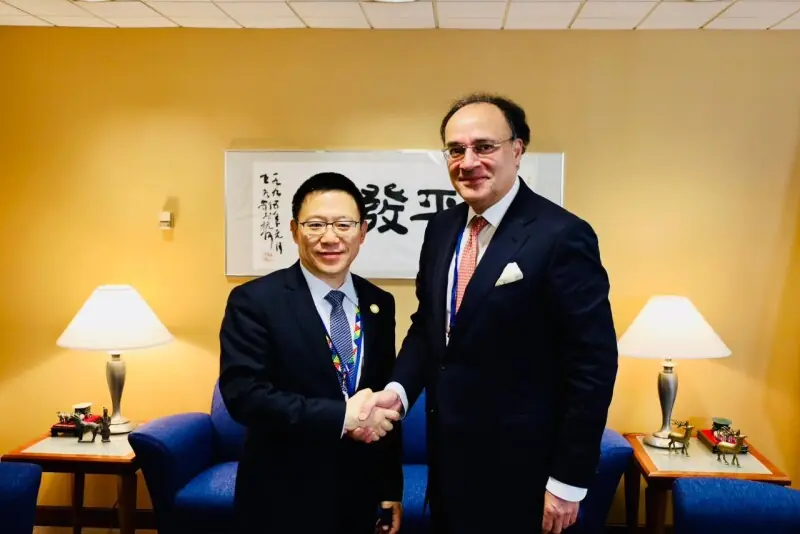Pakistan has sought China’s support for its membership in the New Development Bank (NDB), formerly referred to as the BRICS Development Bank, as part of the country’s efforts to expand access to multilateral financing and strengthen economic cooperation between the two countries.
The development came during a meeting between Finance Minister Muhammad Aurangzeb with Liao Min, Deputy Finance Minister of the People’s Republic of China, in Washington DC.
During the meeting, Aurangzeb “sought China’s support for Pakistan’s membership in the NDB and welcomed enhanced investment from Chinese enterprises in key sectors, including information and communication technology, agriculture, industry, and minerals,” read a statement released by the Finance Division on Friday.
Pakistan deepens global partnerships as Japan’s JBIC joins Reko Diq lender group
The NDB is a multilateral development bank established by the BRICS states to finance infrastructure and sustainable development projects in developing countries. Formerly known as the BRICS Development Bank, it aims to foster cooperation among emerging markets and has expanded its membership beyond the original five BRICS countries to include a growing number of nations.
Aurangzeb briefed Liao Min on the recently concluded Staff Level Agreement (SLA) with the International Monetary Fund (IMF), terming it an external validation of the government’s ongoing economic reform agenda. He also apprised him of the latest developments regarding the issuance of the Panda Bond in the Chinese market.
The finance minister expressed gratitude to the Office of the Executive Director, IMF, for extending full support to Pakistan during recent Board meetings. He also extended an invitation to Liao Min to visit Pakistan at a mutually convenient time.
Aurangzeb also joined the World Economic Forum’s (WEF) Future of Growth Initiative Dialogue on “Leveraging Innovation for Inclusive and Sustainable Growth.”
In his remarks, he underlined that technology must be guided by inclusion and resilience strategies and highlighted the role of AI-led monitoring in boosting efficiency and productivity. He cited the example of AI-based interventions, such as satellite imagery, which have improved farmers’ incomes and service delivery in developing countries.


